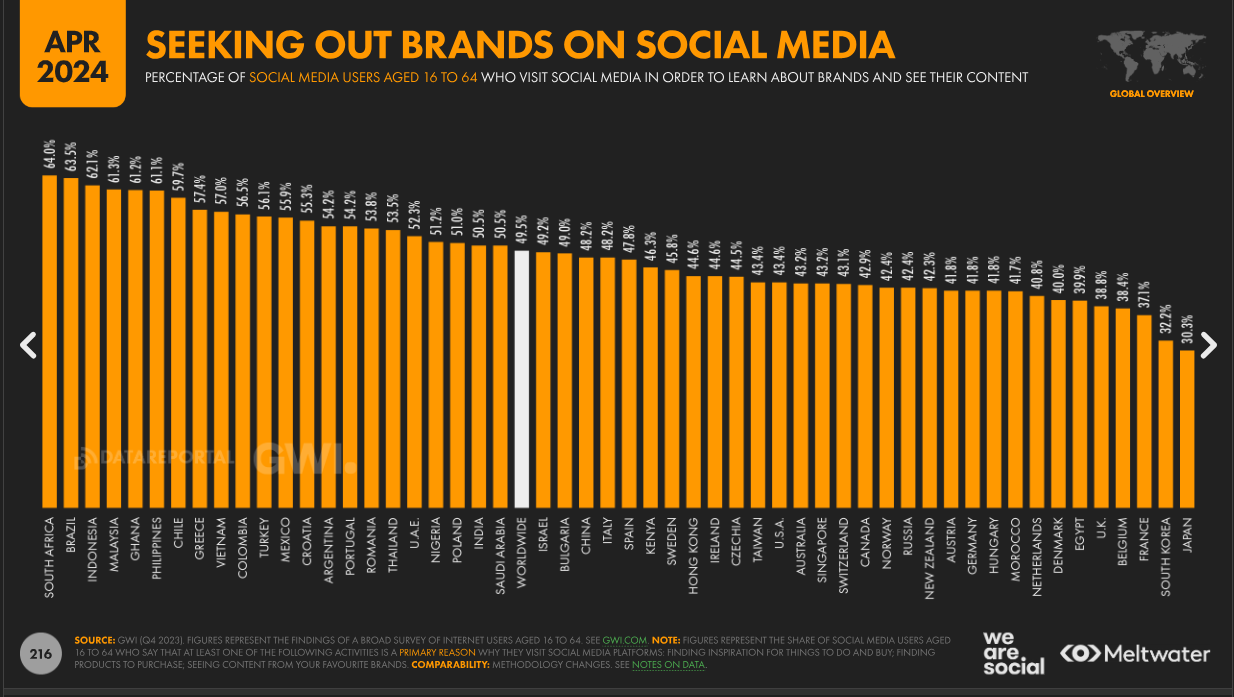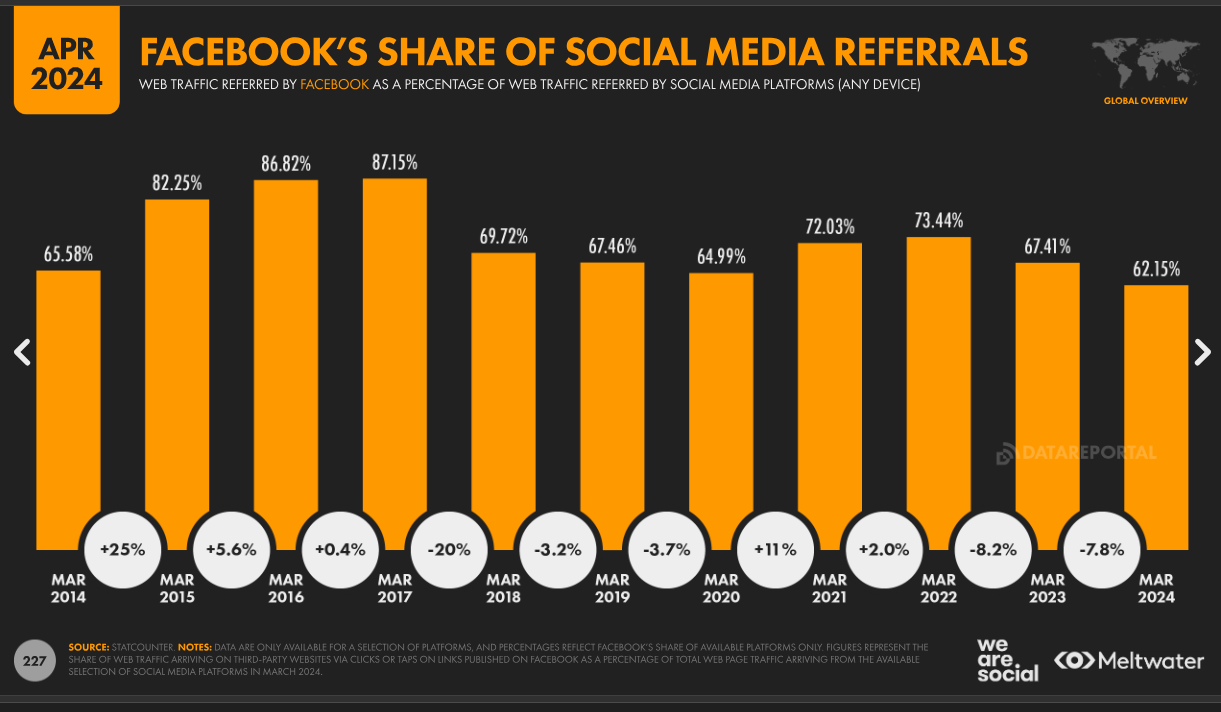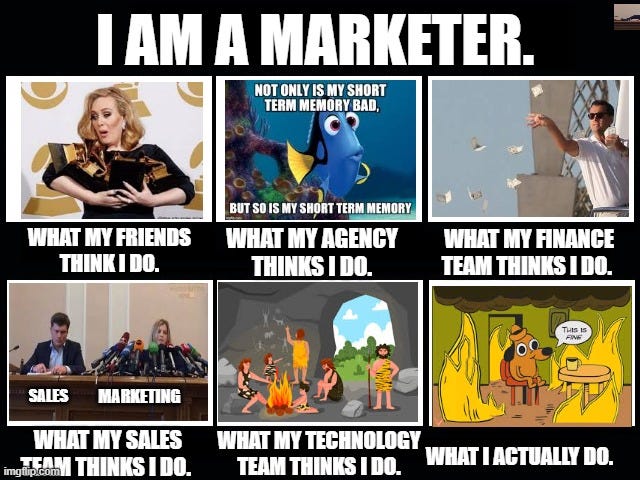Marketing Dojo #64: 📈 The Life of a Marketer 📉
Source of brand discovery, research and engagement, Synthetic data in marketing and more.
Welcome to the 64th edition of The Marketing Dojo!
I guess none of us saw this coming.
Google developed cold feet yet again. It delayed the roll-out of third-party cookie deprecation by another year. This time, the delay is primarily due to the requirements of regulators, most notably the UK’s Competition and Markets Authority (CMA).
I am still a bit surprised at this rollout's tardiness, but I guess the move provides some breathing space for us marketers who simply cannot catch a break!
So here's what we will cover in this issue:
🧠 Getting familiar with synthetic data
🃏 Meme-time: A marketer's introduction slide gets an update.
📈 The Internet’s report card
And some more.
Thank you for helping me hone in on my core idea for a writing course that I am pursuing.
If you haven’t yet reviewed my top 3 ideas, I encourage you to take a moment. Your vote or comment could help me get unstuck.
With this out of the way, let's dive right in.
The Internet’s Pulse Check.
The good folks at Datareport published a massive 450-page "Digital 2024 April Global Statshot Report."
My suggestion: bookmark the report, and you'll likely find every internet-related statistic you need!
Here are my top 7 data points that surprised me:
Brand discovery's photo finish—Search engines lead the pack for new brand discovery. But wait, television follows closely, with 31% of respondents discovering brands through TV ads, and social media isn't far behind at 28.7%.
Brand research is digital - Half of the consumers complete their brand research using search engines, with social networks and consumer review sites as other popular sources.
Social media is the hub for brand engagement: Nearly half of internet users log into social media to learn about brands and see their content.
Savings>> Convenience: Inflationary pressures and the quest to save money dominate online purchases. Free delivery and discounts are the top two drivers of online shopping.
Facebook’s declining super-majority: Although reduced, Facebook's impact remains strong. It drives 62.15% of all web traffic referred by social media, a significant drop from 87% in 2017 but still dominant. It’s declining, yet far from obsolete.
Google’s the Internet’s big Daddy: If you thought Facebook's influence on web traffic was huge, allow Google's influence to blow your mind. 91% of all Web traffic from searches originates from Google. 18% of the traffic of the top 1000 websites is attributed to Google, and a mere 3.6% comes from Facebook.
WhatsApp’s session count v/s TikTok’s session length: Users spend over 31 hours a month watching TikTok, yet WhatsApp sees far more frequent use with 922 sessions a month—nearly 2.8 times more than TikTok.
The report is so vast that you will discover surprises in an entirely different data set. What did you find surprising in the datashot?
Meme-time: It's me. Hi, I am the marketer. It's me.
In 2023, I created a meme titled "Life of a Marketer." I then used the meme as my introductory slide for all talks.
The past 12 months have been a period of massive changes, so I decided to update my introduction. Here's my latest meme on the life of a marketer in 2024.
Resonate? Feel free to use/reuse/modify for your introduction.
LLM’s Less Famous Sibling: Synthetic Data.
There's a significant amount of excitement surrounding marketing use cases for large language models. The prevailing belief is that Gen-AI-enabled solutions will fundamentally transform the content creation process.
Yet, another transformative model is gaining traction and often flies under the radar: Synthetic Data Modeling.
Last week, I went down the synthetic data rabbit hole to grasp its implications for marketers.
What is Synthetic data?
Synthetic data is artificially generated data that mirrors the statistical properties of real-world data. It's crafted using algorithms designed to replicate patterns, distributions, and characteristics of genuine datasets.
Imagine simulating a city in a video game as an approach to studying urban dynamics. Synthetic data can help simulate real-world conditions and save marketers hours of research and experimentation.
While large language models train on written content on the Internet to create new content, synthetic data models train on real-world data sets to create new data sets.
The synthetic data models analyze patterns, relationships, and structures in the original data and then use that understanding to generate new data that looks similar but is entirely new and doesn't replicate any specific real-world data.
Generative AI is the shot in the arm of synthetic data models. Thanks to GenAI, the creation of new data sets becomes automated, more accurate, and cheaper.

What are some of the potential use cases for marketing teams?
Customer behaviour simulation
A/B Testing
Market analysis and planning
Customer segmentation and targeting
Testing and optimizing CRM solutions
And lots more.
I am just beginning to scratch the surface of Synthetic data models. If you have already been using synthetic data to test and improve products, services, or advertising, reach out.
I am all ears.
Short Stuff:
Reddit launched dynamic product ads to boost product discovery on its platform (Learning from Google).
Threads is seeing more active users daily than X in the US (Bad news keeps mounting for X).
Meta licenses the operating system for its Quest headset to other hardware makers, Lenovo & Asus (Meta wants to be the Android of the virtual reality headset industry).
That’s a wrap on this week. Thank you for your time and attention. If you liked this week’s newsletter or found something interesting, please give me a like ❤️ or drop a comment🗨️. Your support helps drive the newsletter's discoverability.
Once again, thank you for your time. See you in your inbox next Wednesday.
Regards,
Garima Mamgain
P.S:
I chanced upon The Office on the in-flight entertainment. And I had no idea what I had been missing.
It's hilarious, silly, and relatable. I love it, and YouTube has clearly figured out my secret. YouTube's algorithm keeps recommending The Office clips to me all the time.
The clip below is a classic example of “Show-don’t-tell”. It’s so smart.
I plan to use it extensively for internal storytelling. What do you feel?













Great insights. loved the part on synthetic data modeling. A must read for all interested in AI and marketing strategies.
So many great insights!
The Google traffic numbers are bonkers. Especially timely since the cynicism about Alphabet seems to be mounting.
And I’d never thought about synthetic data. How valuable is it compared to a real data set of the same size?